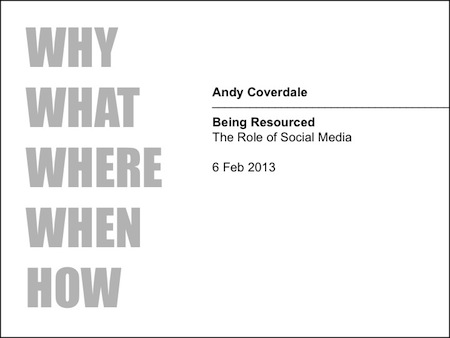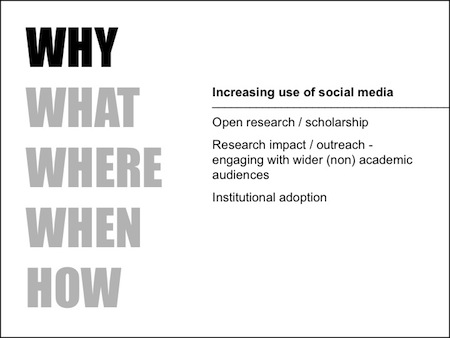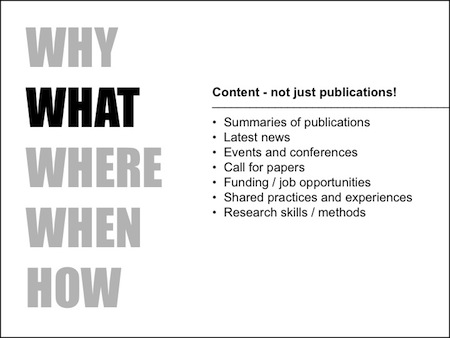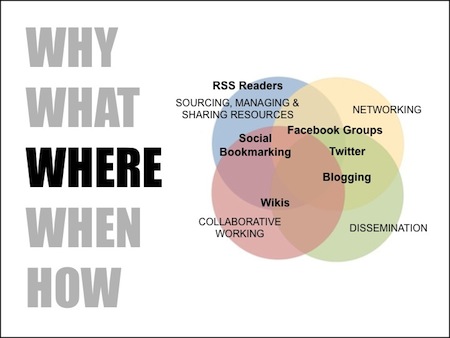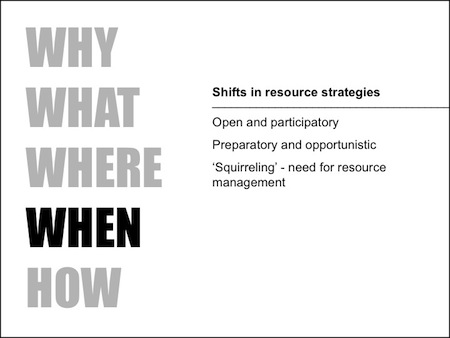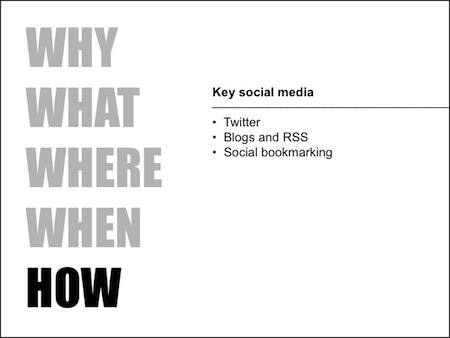That Digital Natives Thing
February 20th, 2013 by Andy CoverdaleSeveral years ago, I attended an international summer school for PhD students working in educational technology. I remember being quite surprised at the number of students (and tutors) who used the terms ‘digital natives’ and ‘digital immigrants’ in their discussions. Why? Because, in the relatively short space of time studying in this field, I had become familiar with – and well versed in – the critique of these and similar terms as commonly accepted tropes. I concluded that I was able to draw on a more informed and refined understanding of the discourse surrounding these terms. In hindsight, adopting such an attitude was not only arrogant but ignorant, exposing a lack of understanding of the cultural contexts in which these terms and their perceived meanings had come to be accepted. There are numerous blog posts and papers discussing the pros and cons of digital natives, but I mention this event because it is relevant when considering the use of terms like these and their rhetorical contexts.
At a more recent e-learning conference I attended, a delegate (who was from outside the ed-tech field) referred to digital natives during a post-presentation discussion. The presenter casually and somewhat rudely dismissed this with a reply along the lines of “well that’s all been proven to be a load of rubbish.” What’s interesting here is how easily some of us casually slip into this type of vernacular. Such sentiments are regularly replicated across the online echo chambers of the Twittersphere and Blogosphere. And whilst some of the digital native ‘klaxons’ may be ironic, the term can unleash genuine expressions of dismay, exasperation, hostility and derision. So it seems that for many, we’ve now got to the stage where routinely rubbishing digital natives has become a default position. In other words, the backlash against digital natives rhetoric has itself become rhetorical.
I realise the debate around the digital natives discourse is relevant to a much wider educational field than the scope of my own professional practice. Yet interestingly, it’s a term that crops up quite regularly in my social media workshops, from highly intelligent, well-informed postgraduate students and early career researchers. I doubt many are aware of the origins of the term or its contentious reputation, and to be honest, I’m not sure if they are necessarily using it to denote the generational differences we most associate it with. I therefore find myself having to give an appropriate and measured response without resorting to the type of knee-jerk reactions described above.
It seems digital natives ‘took off’ in wider academic (and non-academic) discourse because it tapped deeply into what seemed to instinctively describe significant differences in the emerging practices of digital technology users. Arguably, many of the subsequent (mis)interpretations of the generational binary that is regularly attributed to Prensky’s original papers (2001a; 2001b) owe as much, if not more, to other contemporary texts (such as Tapscott’s (1999) ‘Net Generation’). But it is the term digital natives that has stuck the most – and it seems, continues to stick, in the craw of so many of us. In other words, no matter how hard we try to dismiss it, the damn thing just won’t go away.
Friesen (2008) describes how myths emerge when ideological positions and arguments become integrated into common understanding and discourse, often encapsulated in catchphrases or buzzwords. Some of the best critical literature on the subject (for example, Bennett et al. 2008; Jones & Shao, 2011) suggests the proliferation of the digital natives ‘myth’ owes more to intuition and anecdotes than any considered insight or empirically-based evidence. More seriously, there is genuine concern that terms such as digital natives may have influenced ill-informed decisions affecting educational policy. Yet arguably, this is a backlash that has been driven as much by agendas as any rigorous empirical evidence proving otherwise. After all, challenging the generational binary corresponds with fundamental ideals conversant with progressive educational values regarding inclusivity and diversity.
The Visitors and Residents model (White & Le Cornu, 2011) quickly gained recognition (and PR mileage) within the ed-tech field as an alternative framework to digital natives, and seems to offer a more nuanced approach to addressing educational practice. At least this binary emerged from original research and is currently being subjected to further empirical examination by providing a framework for a series of interesting JISC-funded projects. And whilst the authors continue to stress its value as a continuum, they acknowledge the effectiveness of simple binaries as heuristics for communicating complex ideas.
For me, developing a critical stance as a researcher is partly founded on the ability to identify, expose and challenge rhetorical devices in academic discourse. I’m no expert in the study of rhetoric, but from a critical theory perspective, we should seek to expose knowledge claims characterised by idealist and reductivist positions by developing more complex dialectical framings (Kellner, 2003). In doing so, knowledge is seen as fundamentally pluralistic and incongruous, subject to multiple and sometimes contradictory perspectives that have been shaped historically and culturally (Friesen, 2008). This requires us to recognise the type of orthodoxies and rhetoric inherent in the arguments around terms like digital natives, both for and against. This might seem hard to swallow when we are drawing on what we perceive to be a privileged and superior understanding. However, we cannot claim either ownership or exclusivity in the way we define, promote or dismiss such terms.
Crucially, academic rhetoric is interwoven with the disciplinary knowledge of what is ‘commonly known’ within specific fields and specialisms. Yet these have permeable and flexible borders. Communities of discourse are blurred, and understanding of key concepts is multilayered and subject to different degrees of peripherality and legitimacy. Those of you who feel ‘sure-footed’ in the academic terrains where digital natives is routinely rubbished might like to think about how casually you may use any number of other terms that have entered common academic parlance, but which might also have much more specific, nuanced, culturally loaded and contested interpretations in the research fields and disciplines from which they originated.
Perhaps we need to be particularly smart commenting on terms such as digital natives when addressing multi-disciplinary audiences, and be mindful of the assumptions we make about how others understand them. It is only right that we continue to expose and challenge terms we believe to be erroneous, but we should also acknowledge the rhetorical roles they play at all levels and areas of academic (and non-academic) discourse, and adopt both a critical understanding and inclusive approach when contributing to the ongoing dialogue.
References
Bennett, S., Maton, K., & Kervin, L. (2008). The ‘digital natives’ debate: A critical review of the evidence. British Journal of Educational Technology, 39(5): 775-786.
Friesen, N. (2008). Critical theory: Ideology critique and the myths of e-learning. Ubiquity, 9(22).
Jones, C., & Shao, B. (2011). The net generation and digital natives: Implications for Higher Education. Higher Education Academy.
Kellner, D. (2003). Toward a critical theory of education. Democracy and Nature, 9(1), 51-64.
Prenksy, M. (2001a). Digital natives, digital immigrants. On the Horizon, 9(5), 1-6.
Prensky, M. (2001b). Digital natives, digital immigrants, part II: Do they really think differently? On the Horizon, 9(6), 1-6.
Tapscott, D. (1999). Growing up digital: The rise of the net generation. New York: McGraw-Hill.
White, D., & Le Cornu, A. (2011). Visitors and residents: A new typology for online engagement. First Monday, 16(9).
